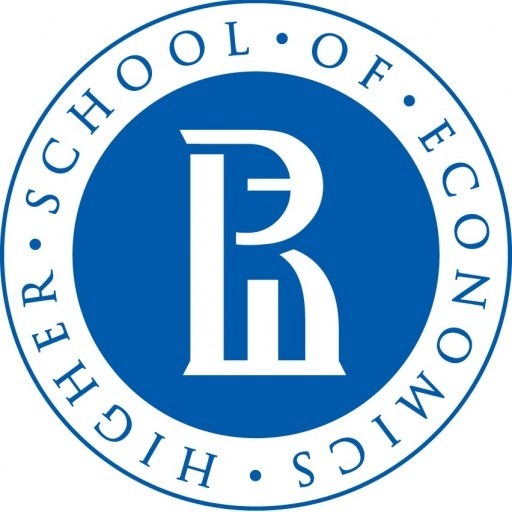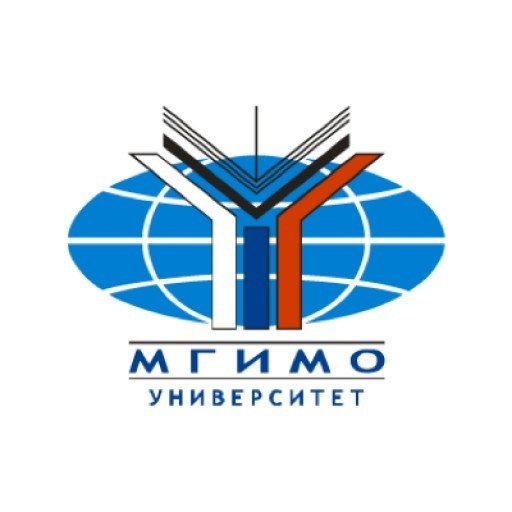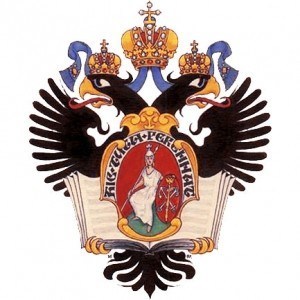Photos of university / #hse_university
The Bachelor's program in International Relations in Eurasia at the National Research University Higher School of Economics offers students a comprehensive and in-depth education in the political, economic, cultural, and security issues shaping the Eurasian continent. The program is designed to provide a multidisciplinary understanding of the complex interactions among countries, international organizations, and key regional actors within Eurasia. Students gain knowledge of regional history, international law, diplomacy, security studies, and economic development, enabling them to analyze regional conflicts, cooperation mechanisms, and geopolitical dynamics effectively. The curriculum combines theoretical foundations with practical skills such as diplomatic negotiation, policy analysis, and intercultural communication, preparing graduates for careers in government agencies, international organizations, research institutions, and private sector companies engaged in Eurasian affairs. Emphasizing both regional specificity and global interconnectedness, the program encourages students to develop a nuanced perspective on issues like regional integration, border politics, energy resources, and ethnic conflicts. Students will have opportunities to participate in internships, research seminars, and international exchange programs, fostering real-world experience and intercultural competence. The program is taught by leading experts in Eurasian studies, with faculty members possessing extensive academic and professional backgrounds in politics, economics, history, and security studies related to the region. Graduates will be equipped to analyze the geopolitical developments within Eurasia, contribute to policy-making, and promote positive dialogue and cooperation among diverse nations and cultures in the region. Overall, the program aims to cultivate well-rounded specialists capable of addressing regional challenges and leveraging opportunities for sustainable development and stability in Eurasia.
The International Relations in Eurasia master's program at the National Research University Higher School of Economics offers students a comprehensive and in-depth understanding of the political, economic, and cultural dynamics shaping Eurasian countries. Designed for those seeking to develop a nuanced perspective on regional affairs, the program combines theoretical frameworks with practical skills to analyze international relations within this strategically significant area. Students will study the historical development of Eurasian states, their foreign policies, regional conflicts, and integration processes, gaining insights into the roles played by major players such as Russia, China, the European Union, and neighboring countries. The curriculum emphasizes multidisciplinary approaches, integrating political science, economics, history, and international law, to foster a holistic understanding of regional issues.
Throughout the program, students engage with a diverse faculty composed of leading experts in Eurasian studies, geopolitics, and international diplomacy. They participate in lectures, seminars, and workshops designed to enhance analytical capabilities, research skills, and policy analysis. Practical experience is also a core component of the program; students have opportunities to undertake internships with governmental agencies, international organizations, think tanks, and diplomatic missions active in Eurasia. These positions enable students to apply theoretical knowledge in real-world contexts, develop professional networks, and acquire valuable insights into the workings of international diplomacy and regional cooperation.
The program also encourages active engagement with contemporary geopolitical challenges, such as security issues, economic development, cultural exchanges, and environmental concerns affecting Eurasian countries. Students are trained to critically evaluate policy options and propose innovative solutions to regional problems. In addition, the program fosters cross-cultural communication skills and promotes an understanding of diverse perspectives within Eurasian societies. Graduates are prepared to pursue careers in international organizations, government agencies, diplomatic services, research institutions, and the private sector, contributing to the development of informed and effective foreign policy strategies in Eurasia.
Overall, the International Relations in Eurasia master's program aims to cultivate future leaders with a profound understanding of regional complexities, strategic thinking abilities, and a commitment to fostering peaceful and cooperative international relations in the Eurasian space. It is an ideal choice for those interested in pursuing a career in diplomacy, international policy analysis, or regional studies focused on Eurasian affairs.
The International Relations in Eurasia master's program at the National Research University Higher School of Economics requires applicants to hold a bachelor’s degree or an equivalent higher education diploma from an accredited institution. Prospective students must submit academic transcripts, a motivation letter explaining their interest in the program and their career goals, and a CV detailing their educational background and relevant experience. English language proficiency is mandatory; applicants must provide proof of proficiency through standardized tests such as TOEFL or IELTS, or demonstrate equivalent language skills. The program favors candidates with prior coursework or experience related to international affairs, political science, or regional studies.
Applicants are also encouraged to submit letters of recommendation from academic or professional referees who can attest to their qualifications and motivation for pursuing advanced studies in International Relations. The admissions committee assesses candidates based on academic performance, relevant experience, language proficiency, and motivation. The program curriculum comprises core courses in international relations theories, regional politics of Eurasia, international security, diplomatic practices, and regional integration processes. Elective courses allow students to specialize in areas such as Eurasian economic integration, regional conflicts, or international law.
In addition to coursework, students are required to complete a research project or thesis focused on issues pertinent to Eurasian geopolitics. Practical training through internships and participation in conferences or seminars is strongly encouraged to enhance professional skills. The program emphasizes interdisciplinary approaches, combining political science, economics, history, and regional studies to develop a comprehensive understanding of Eurasian international affairs. Graduates of the program are prepared for careers in government agencies, international organizations, diplomatic missions, research institutes, and think tanks specializing in Eurasia. The program's rigorous academic standards and regional focus aim to cultivate experts capable of analyzing and addressing complex international issues within the Eurasian context.
The financing of the International Relations in Eurasia master's program at the National Research University Higher School of Economics primarily relies on a combination of government funding, university budget allocations, and competitive scholarships. The university offers a range of financial support options aimed at attracting talented students from diverse backgrounds. Government scholarships, such as the Russian government competitive scholarship, provide full or partial tuition coverage for outstanding applicants, thereby reducing financial barriers for prospective students. Additionally, the university allocates grants and stipends for students enrolled in this program, particularly those demonstrating academic excellence or engaging in research projects related to Eurasian international relations.
Furthermore, the HSE actively partners with various governmental agencies, international organizations, and private sector entities to develop funded research initiatives and internships, which often include financial support for participating students. These collaborations not only enhance practical learning opportunities but also subsidize the cost of studies for enrolled students. The university also encourages students to apply for external scholarships and funding programs offered by international foundations, governments, and academic institutions.
For students seeking financial assistance, HSE provides comprehensive information and assistance in locating sources of funding applicable to international relations and Eurasian studies. The university's finance department facilitates the application process for various scholarships, stipends, and grants, aiming to make higher education accessible and affordable. Overall, the financial structure of this master's program is designed to support students through a multifaceted approach, combining institutional funding, external scholarships, and partner organization support, to ensure committed and talented scholars are able to pursue their studies without undue financial hardship.
The International Relations in Eurasia Master's program at the National Research University Higher School of Economics is designed to provide students with a comprehensive understanding of geopolitical, economic, cultural, and security issues affecting Eurasian countries and their relations with the wider world. The curriculum emphasizes the historical development of the region, current political dynamics, international cooperation, regional conflicts, and integration processes. Students gain analytical skills to assess international policies and strategies employed by Eurasian nations, including Russia, Central Asian republics, Caucasus countries, and neighboring states. The program combines theoretical approaches with practical applications, encouraging students to engage with real-world case studies, policy analysis, and diplomatic practices.
Academic courses cover a broad spectrum of topics such as Eurasian political systems, security studies, economic development, regional organizations like the Eurasian Economic Union, SCO, and CSTO, as well as soft power, cultural diplomacy, and cross-border cooperation. Students also learn about the role of international law, environmental issues, and complex regional conflicts affecting stability in Eurasia. The program aims to nurture specialists capable of working in international organizations, governmental agencies, research institutes, and private sector companies dealing with Eurasian affairs.
The program's faculty includes leading experts in International Relations, Eurasian Studies, Political Science, and Economics, offering students high-quality education rooted in current research. The university's strategic location in Moscow and partnerships with institutions across Eurasia allow students to participate in internship programs, conferences, and joint research projects, fostering practical skills and professional networks.
Language proficiency is emphasized, with courses often offered in English and Russian, enabling students to operate effectively in multicultural environments. The program prepares graduates to pursue careers in diplomacy, international consulting, journalism, regional development, and policy analysis. It promotes an interdisciplinary approach, integrating perspectives from political science, economics, history, and law to equip students with a holistic understanding of Eurasian international relations. Overall, the Master's in International Relations in Eurasia at HSE aims to develop expert analysts and policymakers committed to fostering regional stability and international cooperation in this diverse and strategically vital area.









